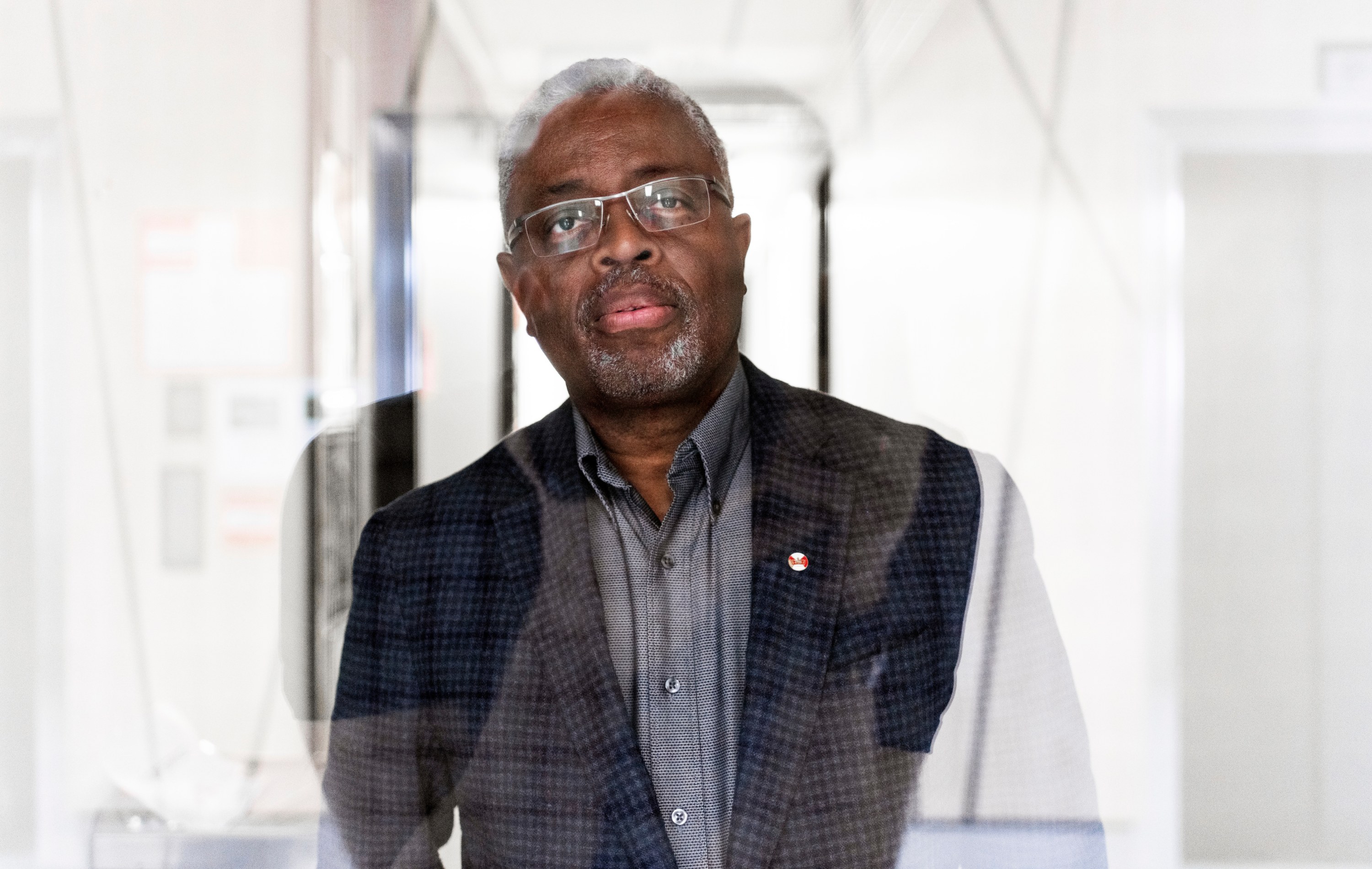The Department of National Defence has awarded a grant to a University of Alberta professor to gauge the extent of white supremacy in the Canadian Armed Forces.
Political scientist Andy Knight will assess just how entrenched radicalization, antisemitism, xenophobia and anti-Black sentiments are in Canada’s military and come up with suggested policy to respond.
In addition to interviewing military officials, he plans to assemble experts and policy makers from diverse backgrounds to understand what attracts white supremacists to the armed forces and devise strategies to weed them out.
He also plans to produce a 25-minute documentary film to capture academic workshops and interviews with members of the military for broadcast distribution, and will disseminate the results of his investigation on his popular podcast, BlackTalk.
“White supremacists seem to be infiltrating the military in Canada, and this poses a serious threat to Canada's national security,” wrote Knight in his successful proposal for a Targeted Engagement Grant from the DND’s Mobilizing Insights in Defence & Security Program (MINDS).
Knight is also the U of A’s first provost fellow in black excellence and leadership, a position in which he will work to combat anti-Black racism in the university as well as promote Black recruitment and retention, help identify and address inequities and support the development of curriculum in Black studies.
He pointed out that the armed forces received 143 complaints in 2020 about hateful conduct and xeno-racist attitudes within their ranks and that even the National Security and Intelligence Review Agency had a limited ability to identify white supremacists in the forces.
Knight says he became increasingly concerned about the prevalence of white supremacists in the armed forces during the Freedom Convoy’s occupation of Ottawa early in 2022, when news organizations reported that some protesters were active members of the military service.
“I could understand former members joining the protests,” he says. “Perhaps they were disillusioned. But we’re talking about people active in the military working against the Canadian state.”
After Knight gave a presentation to DND officials last fall, in which he drew attention to racism in their ranks, they encouraged him to submit a proposal.
“They were the ones that said to me, ‘You know, you're onto something,’” he says.
In a letter to Knight, one official wrote, “Your overview of key actions which contemporary militaries should take to successfully mitigate systemic racism provided a valuable context for considering Canadian priorities in this area moving forward,” adding that he highlighted “important considerations for Canadian defence and culture change.”
Individual cases of racism are not the main problem, says Knight.
“It lies in institutional racism as an embedded culture. You have to question, why is it that some people are attracted to the military?”
In one sense, the military “gives them a kind of cover to pursue their white supremacist ideas” in a culture that “privileges white, predominantly male ‘warriors.’”
Knight will therefore investigate the social construction of “whiteness” in the armed forces and the “privileges this may bestow on certain people,” he says.
Also at work in Canada’s military culture is what Knight calls xeno-racism, directed at new immigrants to Canada or those considered separate from “us who we have to defend.”
“There is this sort of container concept mentality: What is inside has to be protected. It has a lot to do with stereotypes that existed when the military was first created in Canada. Equity, diversity and inclusion are difficult to achieve because they “disrupt the tradition of the military,” says Knight.
“Anybody coming into the system has to change themselves if they want to make it. If you're a Black person and you want to get ahead, you have to accept a lot of things that you normally would not accept.”
Knight says he has been given leeway to interview members of DND leadership as well as security and defence experts about their impressions of white supremacy in the armed forces and how it might be addressed.
He has one year to deliver his report, along with recommendations for change, “aimed at helping the CAF become more adaptive, diverse and inclusive both during recruitment of new military personnel and the retention of those diverse individuals,” he says.
He will also probe why previous policies to affect culture change have been largely ineffective.
“Have the armed forces struggled to meet inclusivity targets because of ethno-cultural blindness? If so, why is that?”
